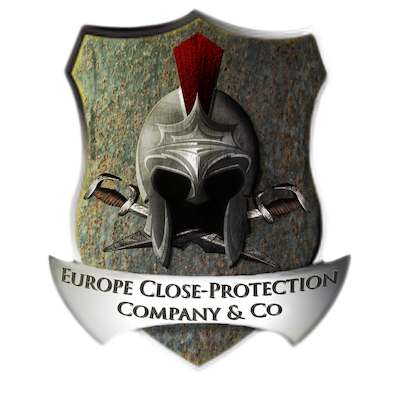If we look at some of the statistics and statements produced
by the major organisations operating within the HRA (High Risk Area) of Somali
based piracy, you get a feeling of not only the size of the problem but also
how little the international community can do and how alone you and the rest of
the merchant shipping industry must feel:
Piracy Attack Damage
''There is a 1 in 500 chance of being pirated in the HRA that
covers an area of 2.8 million square miles. To effectively cover this entire
area and provide a response within 1 hour there would need to be 83 warships
with helicopter capability deployed at any one time.,,
(Colonel Richard Spencer, Former Chief of Staff, EU NAVFOR)
(Colonel Richard Spencer, Former Chief of Staff, EU NAVFOR)
''The failure to comply fully with BMP4 places the ship
owners/operators, Master and crew at unnecessary financial and personal risk.''
(Captain Pottengal Mukundan, Director IMB)
(Captain Pottengal Mukundan, Director IMB)
Self-protection measures have been proven the most
successful means of preventing a pirate attack and 80% of attacks outside the
GOA (Gulf of Aden) have disrupted a pirate attack with correct implementation
of BMP4. The vast majority of successful pirate attacks are where vessels have
not been applying BMP4 to the fullest possible extent.
(Colonel Richard Spencer, former Chief of Staff, EU NAVFOR)
(Colonel Richard Spencer, former Chief of Staff, EU NAVFOR)
These statements speak for themselves and the importance,
for crew safety and sound economics, to abide by BMP4 is paramount. The
difficulty however is the understanding of how to apply this effectively. In
most cases Masters and crew believe they have implemented a sound plan in
accordance with BMP4. What we have found however, is that in over 80% of these
cases the anti-piracy security plan and hard fortifications have not been
implemented to a sufficient level. This is not through a lack of desire or
seamanship but that of limited knowledge of piracy tactics and military
defensive experience to combat an attempted boarding.
For the mariner, military type defensive tactics and knowing
the right approach to mitigate these increasing threats is a maze of
uncertainty. When an SSO (Ships Security Officer), Master or crew look at their
vessel they, unconsciously, undertake their role of seamanship with confidence
and to great effect. This is akin to the trained maritime security consultant
where the implementation of BMP4 is second nature, they instinctively
understand the principles of defence and the tactics that pirates use to board
and gain control of your vessel.
The security of maritime interests is a huge concern for
you, shipping companies and ship owners and when you consider the cost
implications adds to this increasing problem.
One of the biggest decisions expected to be made on the
European Unions (EU) commitment to combatting Piracy off the Horn of Africa,
did not produce the response many were expecting. The House of Lords extension
of Operation Atlanta, which is deployed to protect fishing, the world food
program and provide assistance to merchant shipping from piracy is due to end
in 2014, was not formally extended.
For many this has been the foreseen agenda, which is
strengthened when compared with the EU’s commitment to producing its latest
mandate on the use of Privately Contracted Armed Security Personnel (PCASP), a
clear sign of its intention to place this increasing problem into the hands of
the commercial security sector. It is believed that the EU has also been under
extreme pressure form individual states that, after little direction or
commitment form the International Maritime Organisation (IMO), decided to take
decisive action and provide a mechanism for their flagged vessels to protect
themselves. The UK Prime Minster being the most prominent in October 2011 when
his government made the announcements public!
General John
Craddock, NATO’s top commander in 2008 pointed out that we cannot continue to
chase around the 2.8 million square miles of open sea in multi million Dollar
warships looking for a needle in a haystack, its not economically sound or
practical. He concluded that the only way to eradicate piracy was through
land-based operations. If we look back in history to the rise and fall of
piracy we can see that this has been proven as the only means so far of
“getting the job done”. The rival of Julius Caesar, Pompey or The First Man of
Rome, was the republic of Rome’s leading general. In 3 months he eradicated
piracy in the Mediterranean by not looking for them on the high seas but
destroying around 150 pirate land bases.
What conclusions can we decipher therefor from what works
and what national government and international organisations have decided to do
commit to the piracy problem. It all comes down to cost over commitment! There
is clearly a moral element to the private sector dealing with a state problem,
but if dealt with correctly with transparency them there is no reason why it
cannot work.
The UK government have appointed SCEG (Security in Complex
Environments Group), which is part of the ADS group, to help with regulating
private security companies. What this means is that frameworks are currently
being developed in line with the UN’s mandate for humanitarian law and human
rights which I’m sure everyone will agree is a positive move. Areas that they
will focus on will be Training Standards and
national/international law and its interpretation through the use of working
groups.
These positive
moves by the government and SCEG will certainly raise the bar within the
security industry but also help provide confidence for those business areas
that seek to use the services of private security companies in complex
international environments. Now, if the government are content, the security
sector are happy and ultimately the customers of private security companies
feel confidant and safe, then for me this is a triumphant situation for all
concerned!
WebSite:
Facebook page :
Official E-mail
info@europecloseprotectioncompany.com

.jpg)
Nessun commento:
Posta un commento